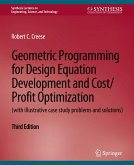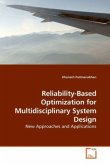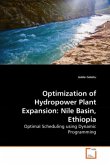A refrigerated gas plant (RGP) faces operational challenges on three fronts namely: 1) at the plant inlet, fluctuations in flow rate and composition caused by multiple feed gas streams; 2) within RGP, unscheduled shutdowns due to equipment malfunction; 3) at the outlet, strict product specifications enforced by the customers. These challenges force RGP to improve its efficiency in order to sustain profitability. An identified area for improvement is during operational planning. This type of planning poses a short-term and continuous scheduling problem in which preconfigured setpoints are directly implemented by regulatory controllers. While this practice is currently accepted, economic benefits can be further realized by frequent reevaluation of plant states through real-time optimization (RTO). Since scheduling is performed at a much larger time-scale (days-weeks) as compared with RTO (hours-days), integration of these two automation layers is difficult. This book discusses an efficient approach for integration of scheduling and RTO in the RGP.








